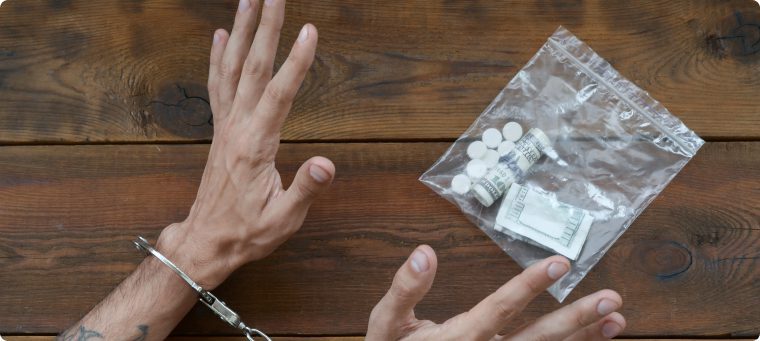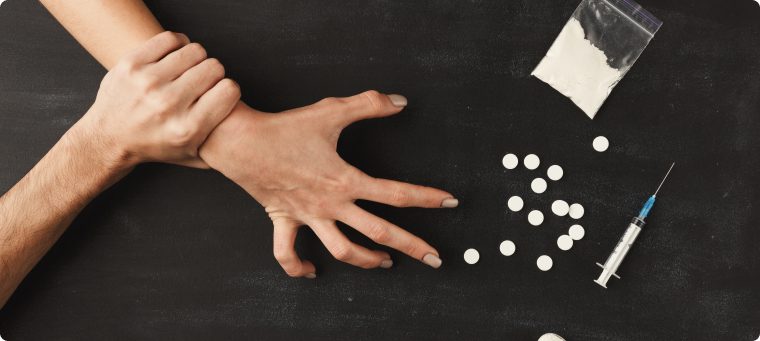We offer medical detox and multiple addiction treatment options in our
luxury treatment centres in Port Hope, Cobourg, and Ottawa.
How to Help with Addiction: Canadian Centre for Addictions Guide
Find out how to help someone with an addiction to drugs or medication. Learn how to be a positive influence and how to help an addict on their recovery journey.
Seeing someone you care about struggling with addiction can be heartbreaking, overwhelming, and frightening. Addiction does not affect the addict alone; it often takes a toll on their family members, friends, and others who care about them. Loved ones of addicts often have to bear the emotional, financial, and legal costs of an addiction. Having an addicted loved one can also lead to codependency, a type of relationship where your attempts to help an addict manage their addiction further enables them. You may also neglect your well-being while trying to rescue the addicted individual.
You can’t force a person to give up an addiction, and an addict first has to be willing to get help. However, by being supportive, you can become a positive influence that is vital to their recovery. The Canadian Centre for Addictions explains how to help and support someone with a drug addiction and how to help a drug addict begin their journey to sobriety without losing yourself in the process.
Key Takeaways
- Addiction does not only affect an individual; their loved ones and others who care about them may also feel the impact of the addiction
- Most people with addiction require support from loved ones to get treatment and recover from their addiction
- It’s essential to learn how to help someone who is addicted to drugs so you can provide effective help without being negatively impacted in the process
What is Substance Abuse?

Substance abuse is the practice of using alcohol, drugs, and other psychoactive substances in a way that leads to significant problems. Abusing substances could mean using a substance in a way that is not recommended or using more than the quantity prescribed. People often abuse substances to get the euphoric effects or “high” that these substances elicit. However, drugs of abuse also impair judgment and increase one’s risk of accidents or injury.
Substance abuse is not the same thing as addiction. People who abuse substances can quit and switch to a healthier lifestyle. Conversely, addiction is a compulsive need to use a substance despite obvious harmful consequences. It is medically known as substance use disorder (SUD) and requires professional help to overcome it. Substance use disorder leads to physical and mental health problems and can sometimes be life-threatening.
If your loved one is struggling with substance use disorder, the Canadian Centre for Addictions can help. At CCFA, we offer sophisticated addiction treatment in an environment that inspires lasting change. We also help people understand their addictions and the healthier coping strategies available to them by engaging them in one-on-one counselling with certified counsellors, psychiatrists, and mental health professionals. Call 1-855-499-9446 to learn more about our addiction treatment programs.
How Does it Affect Your Relationship with Your Loved Ones?

Substance use disorder can severely impact your relationship with a loved one. The stigma, shame, or guilt of having a loved one who is an addict can damage existing cordial relationships. An addicted loved one will often lie or use deceit if necessary to keep using their substance of choice. Their actions can lead to a loss of trust and resentment, which strains the relationship further. Anger at the activities of an addicted loved one can also prompt abuse and aggressive behaviour.
Substance abuse can also lead to codependency or enabling behaviour. This happens when your love or desire to see an addicted loved one get better clouds your judgement and causes you to “assist” them in ways that enable them to continue their drug use. You may try to assist them by giving them money or bailing them out of police custody if they get into trouble. However, the money goes into getting more drugs and helping them out of legal trouble shields them from the consequences of their actions. It’s difficult to watch a loved one suffer the impacts of their addiction, but tough love is sometimes needed to get them to see the need for change.
Spotting the Signs of Substance Use Disorder
Individuals with substance use disorder tend to hide or deny there is a problem for as long as possible. However, seeing any of the following signs could mean that your loved one is struggling with a substance use disorder:
- Using the substance in increasing amounts
If your loved one is drinking more than usual or visiting the doctor frequently for prescription refills, they may be struggling with substance use disorder.
- Secretive or suspicious behaviour
The stigma of having an addiction causes people to be secretive about the problem. If you notice your loved one is always being evasive, or you find bottles or pills in unusual places, they may be trying to conceal a drug problem.
- Unexplained financial Issues
Addictions can be expensive, and people with addictions may borrow or steal money to fund their habit. If your loved one is always asking for money for groceries or other basic stuff, you may need to ask where their money is going.
- Getting into fights or legal trouble frequently
Substance use disorder leads to aggressive and reckless behaviour. Your loved one may be getting into brawls or police trouble for driving under the influence frequently due to a drug problem.
- Deterioration of physical appearance
Feeding an addiction often becomes the centre of the addict’s life, and they’ll prioritize their addiction above everything, including their appearance and hygiene. If a loved one is suddenly always looking disheveled or sick, it may indicate an underlying addiction.
- Unexplained weight loss or gain
Addiction to substances like crack, heroin, and cocaine often leads to rapid weight loss, while alcohol contains calories that can cause weight gain if overused. Sudden weight changes in your loved one may point to an addiction.
- Sudden mood swings
Addictive substances primarily affect and create chemical imbalances that may provoke unexplained mood swings. If your loved one is frequently acting irrationally or unable to contain their impulses, you should consider probing for a substance use disorder.
- Neglecting obligations or hobbies for unexplained reasons
If your loved one finds excuses to skip their responsibilities or avoid events they previously enjoyed, an addiction may be taking up their time.
Other signs of addiction include:
- Lack of motivation
- Increased irritability or anger
- Slurred speech
- Changes in sleeping patterns
- Appetite changes
- Bloodshot eyes
- Runny nose
- Unusual body or mouth odors
A Step-by-Step Guide on How to Approach a Drug Addict

Approaching an addict is often challenging, as they may get defensive or misunderstand your attempts. All addicts are different, but these general guidelines can increase your chances of getting through to the addict successfully.
Educate Yourself
Addiction is a delicate issue; it helps to learn about the situation before dealing with an addict. You need to understand that addiction is a disorder and not resulting from poor moral decisions. The societal stigmas around addictions are harmful and are more likely to prevent addicts from speaking up or seeking help. The more knowledge you have about the situation, the better the quality of support you can provide.
Be Kind and Courteous
Your emotions may get the better of you when you approach your loved one. However, this is more likely than not to be counterproductive. They probably already feel bad about the situation, and you don’t have to make them feel worse. Try not to speak in an accusatory or judgmental manner. Avoid stereotypical language like “junkie” or “druggie” when speaking to them, as these can affect their perception of themselves and their ability to get better. Use reassuring words to make them see that you understand and are willing to help them through their challenges.
Be Prepared to Listen
Communication is two-way, and your loved one must see that you’re willing to listen to them. Give them time to speak about their situation without interruption or judgment. It’s crucial to hear them out even if you disagree with them. You don’t want them to think you’re assuming the worst about their situation. Don’t make excuses for them, but you should also not downplay what they say, no matter how insignificant or trivial it may seem. Speak to them about other things besides their addiction; ask about what they’ve been up to and their plans for the future. It’s important to understand that they’re still humans with desires and aspirations.
Have Options for Help Available
Have a list of addiction help resources you’ll recommend if they’re receptive to your approach. There are several effective treatment options you can suggest. Depending on the type of addiction, treatment might involve counselling, support groups, medication, and residential rehab. Offer to accompany meetings or appointments as a show of solidarity. Presenting a list of options shows your loved one that you’re serious about getting them help and may spur them into taking positive action.
Be Realistic
It’s possible that your offer of help will be turned down, or your loved one will fail to keep their promises. Don’t react angrily or feel sorry if they do. They may see things differently from you or have their idea of making changes. Respect what they are saying and trying not to impose your opinions. In many cases, it would take a series of discussions to get them to see the need for help.
Set Healthy Boundaries
While showing support and empathy in your approach is essential, you must also set healthy boundaries for interaction with an addicted loved one. Be firm in your words and actions so they don’t misunderstand what you’re saying or what you expect. If they are unwilling to get help, you should immediately cut off all enabling acts that shield them from the consequences of their addiction. Don’t support them financially, pay court fines, or settle their legal bills. Sometimes, only a tough approach can get an addicted loved one to see reason.
Supporting A Drug Addict Do’s and Don’ts
In supporting your loved one with a drug addiction, your actions must clearly communicate what you’re trying to say. They are less likely to follow your suggestions if you send mixed signals. Following these do’s and don’ts will increase your chances of getting them to make a positive decision:
Do’s
- Speak Clearly and Firmly
It’s always best to communicate your thoughts in a clear and forthright manner, avoiding ambiguity or vagueness. Explain your feelings about their addiction and how it’s affecting others frankly. Their possible defensive response to your intervention should not deter you from baring it all out. This kind of reaction is not unusual and may be the springboard for future and more successful attempts.
- Choose the Right Time and Place
No time is good enough to talk about addiction, but speaking at the wrong time can affect your chances of success. Select a time when you know your loved one would be sober to broach the subject. You can also take advantage of a moment you sense they are in a good mood and would be more inclined to listen. Try not to worry about ruining their mood; it’s bound to be ruined sometime in the future if they don’t get help.
- Show Commitment
Addiction can be a lonely path, and you can help your loved one feel less isolated by taking action that shows your commitment. You can set a positive example by getting into therapy or attending support meetings for loved ones of those affected by addiction. Consider researching treatment programs and letting your loved one know they’re available whenever they are ready. Committing to their recovery can enhance your relationship with your loved one, making them more receptive to your attempts.
- Protect Yourself
Helping someone with addiction doesn’t mean that you have to neglect your well-being. You must set and enforce healthy boundaries that safeguard your time, health, and resources. Ensure that your attempts at helping them are not enabling so they don’t become lazy and unmotivated to find help. Don’t hesitate to put your foot down if they violate your boundaries and explain why if they ask.
-
-
Don’ts
- Talk to Them When They are Intoxicated
More often than not, speaking to someone under the influence of a substance is a waste of effort. They won’t be able to think clearly or understand what you’re saying, so they are unlikely to be able to make any meaningful decisions. You are also likely to be overwhelmed by your emotions seeing them in that state, making you likely to say something harsh.
- Trade Blames
It’s easy to look for who to blame in a challenging situation; in addiction cases, the person with the addiction is always the easiest target. Addiction is not a choice; blaming the addict only pushes them into more negative behaviours. You may also blame yourself or other family members for not doing enough to prevent the situation. This also doesn’t achieve anything and only inflames emotions more.
- Ignore the Problem
Pretending your loved one’s drug abuse or addiction is not a serious problem also doesn’t help. Addiction is progressive and will get worse if untreated. Trying to help may not guarantee change, but even a failed attempt can be the seed for future successful ones.
- Enable their Addiction
You must ensure that your actions to help do not enable or encourage an addicted person to keep up with their destructive behaviours. So, you mustn’t lie to cover for them, stay quiet when you should speak against their actions, take up their responsibilities, or help them out of difficult situations. People with addiction are more likely to see the need for help when facing the full impact of their addiction.
Don’t Forget About Self-Care

One of the best decisions you can make as you help someone with addiction is to look out for yourself. You won’t be as effective if you let their problems interfere with your health or emotional state. Your care and compassion may turn to anger or resentment towards them if their addiction takes a toll on your life.
It’s essential to keep doing the things you love as you care for someone with addiction. Eat well, get plenty of rest, socialize, and have fun whenever possible. Also, consider going for therapy if you think caring for someone with an addiction is starting to get to you.
Tips on Maintaining Support for Your Loved One Before and After Treatment
Your loved one will still need your help if they accept your offer and seek treatment. Here are some tips on maintaining your support before and after they return from treatment:
Create a Sober Environment
Ensure their home environment is free from drugs and alcohol. Learn what their triggers are and minimize their availability as much as possible. Replace these items with books, music records, plants, and other inspiring materials. Creating a sober, trigger-free environment gives your loved one a better chance of avoiding relapse and remaining addiction-free.
Encourage a Healthy Lifestyle
Living a healthy lifestyle reduces stress and suppresses cravings. Encourage your loved one to eat right, exercise, and rest well so they can feel good about themselves and not think of returning to drugs.
Promote New Interests
Most addicts turn to drugs as a coping mechanism to deal with stress and other issues. Your loved one needs to fill their free time with healthier activities. Encourage them to learn to play an instrument, practice a new hobby, or study a foreign language. You should consider joining them in their new interests so you can build a stronger, healthier relationship and form great memories.
Support Their Ongoing Treatment
Addiction treatment continues even after a person returns home. They may need to keep attending scheduled appointments and support group meetings for a while. You can support them by encouraging them to keep to their schedules and accompanying them whenever possible. Your support could be the difference between continued recovery and a relapse.
Maintain Your Optimism around Them
Addiction recovery is a tough journey, and challenges will inevitably arise. It’s vital to keep being optimistic and supportive even if they relapse. Speak to them positively, letting them know that their struggles are part of the process. Encourage them with stories of people who overcame addiction and lived fulfilling lives. Letting them know they are not alone can make the recovery journey easier.
Conclusion
Addiction is a complex disease that no one should face without help. Helping a person with an addiction can be difficult without the proper education. So, it’s necessary to be equipped with resources on how to treat an addict without losing yourself in the process. Even after undergoing treatment, your loved one may relapse multiple times before they achieve stability. Understand that they need your patience, understanding, kindness, and love to recover and return to a productive, fulfilling life.
Frequently asked questions
You should speak only positive words and expressions of love to someone in recovery. Examples of things you can say are:
- “You are not alone.”
- “You are doing great.”
- “How can I help?”
- “I love you!”
- “I’m proud of you!”
You can keep a recovering addict sober by being supportive and non-judgmental. Listen to their concerns and encourage them to adopt healthy habits. Also, ensure that their environment is drug-free and accompany them to appointments or support meetings if possible. Ultimately, helping someone stay sober means being patient and understanding as they go through recovery.
You shouldn’t speak insensitive or triggering words to a sober person in recovery. Examples of things not to say to a sober person are:
- “Come on; it’s only one drink.”
- “How do you know you’re an addict?
- “When will you be able to drink again?”
- “You don’t look like an addict.”
- “Do you miss it?”
- “I totally understand how you feel.”
There is a relationship between genetics and addiction. Studies show that 40% to 60% of a person’s risk of developing a substance use disorder may come from their genes.
You can love someone who is addicted by being a positive influence. Understand that addiction is a disease and not the result of moral failure. Communicate with them, offer advice, encourage them to get help, and remain optimistic as you wait for a positive decision.
Someone with a narcissistic personality disorder may carry a high risk of becoming an addict. However, not all drug addicts are narcissists and not all narcissists are addicted to drugs.






